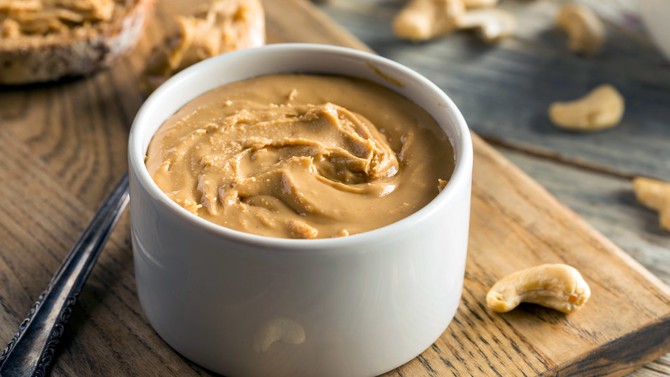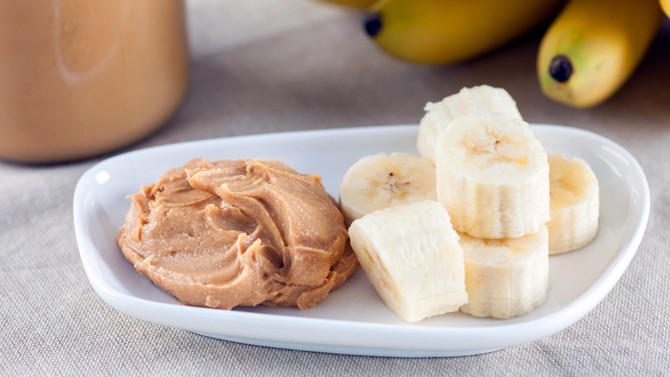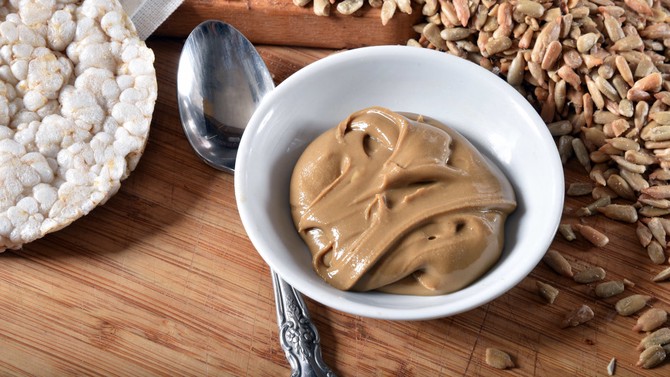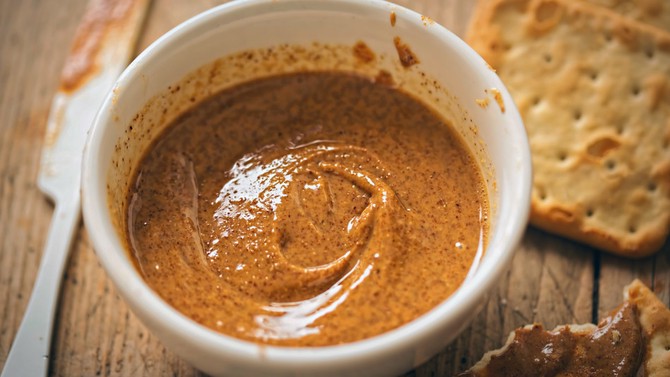The Nut Butter That Best Suits Your Personality
Find your ideal toast topper, sandwich filler or straight-out-of-the-jar snack.
By Lynn Andriani

Photo: iStock/bhofack2
If You've Got a Sweet Tooth...
These days, you'll find nut butters that include all kinds of sweet mix-ins, from maple to chocolate to toffee. But if you're trying to lower the amount of added sugar you consume, plain cashew butter is a good occasional splurge. The nut itself is naturally sweet-tasting; in spread form, it makes a great dessert alongside apple or banana slices.

Photo: iStock/Professor25
If You're a Budget-Minded Health "Nut" (Er, Legume)...
Despite all the new nut butters on the market, it'd be a crime to disregard classic peanut butter. It's delicious, goes amazingly well with everything from strawberry jam to dark chocolate, and is actually pretty nutritious. It's higher in protein than almond, cashew, hazelnut or sunflower seed butter; and is a great source of monounsaturated healthy fats. Best of all: It's widely available and wallet-friendly. For the most nutritious bang for your buck, look for peanut butters that contain only two ingredients: peanuts and salt.

Photo: iStock/MSPhotographic
If You're Adventurous and Up for Something Different...
Primarily marketed as a nut-free alternative spread, sunflower seed butter is made from the kernels of sunflower seeds. We'll be honest: It has a unique taste that doesn't closely resemble any other nut butter. Think somewhat bitter, and a little earthy. Give it a try, though, and you might just love it...it's especially good in granola bars or as a sauce for vegetables, similar to the way you'd use tahini (mix it with some soy sauce, olive oil and as much water as you need to make it a drizzly consistency). Bonus: Sunflower seed butter is higher in magnesium, zinc, iron and vitamin E than peanut butter.

Photo: iStock/Bartosz Luczak
If You Savor Your "Me" Time...
Yes, almond butter is pricey (it can run about $13 for 16 ounces, versus $6 for the same size peanut butter). But if you're looking to treat yourself, you could do far worse than a jar of almond butter. Women in particular stand to benefit from one of almond butter's star ingredients: calcium. The spread has 56 mg per tablespoon (for comparison, peanut butter has 14 mg and cashew butter has 7 mg), which is of great importance for bone health—
and women are at a higher risk for osteoporosis than men are. The National Institutes of Health recommends that women ages 18 to 50 consume 1,000 mg of calcium daily; over age 50, consume 1,200 mg.
Published 09/21/2018

